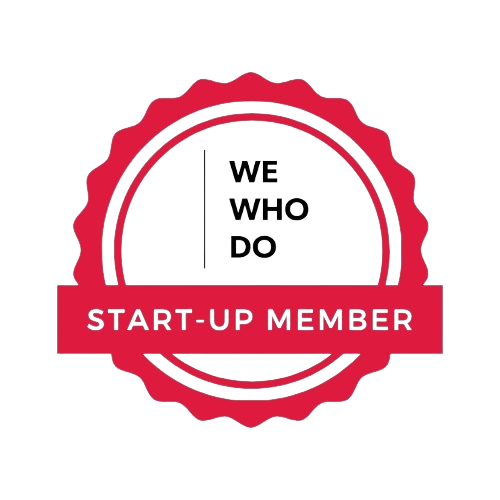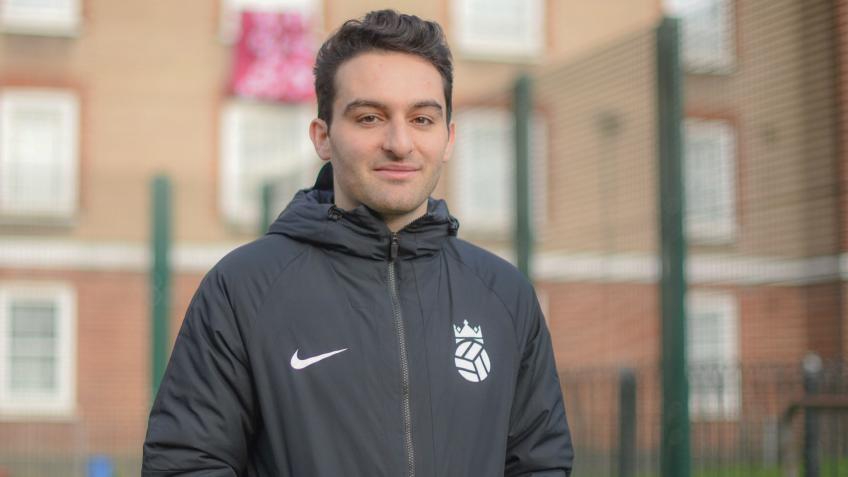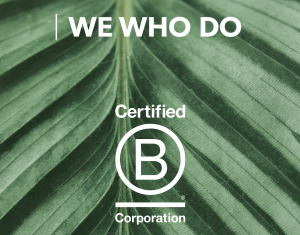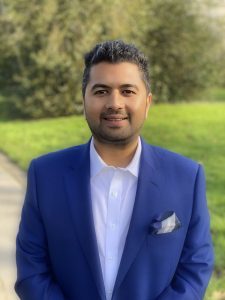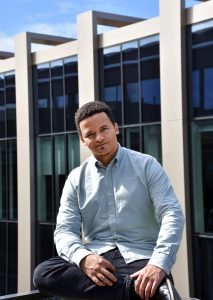Chatting to Charlie Hyman, it is clear he is passionate about both football and improving the life of children. The past year has been challenging for kids in so many ways, and Bloomsbury Football offers an outlet where they have the opportunity to learn new skills, meet different people and ultimately enjoy being just children!
Read our interview with Charlie, Founder and CEO, below:
Where did the idea for Bloomsbury Football come from?
Charlie: I’d always loved playing football myself. As a kid, I reaped the benefits of playing in teams and I was lucky to have the opportunity and support to do that from my parents. When I was at Sixth Form, I started coaching my younger brother’s team and really got the bug for it. After working at a Premier League Football Club and various other sporting organisations, I started to see two core things emerge about children’s football in particular.
Firstly, the quality of the provision was low: from untrained football coaches to flat footballs. Secondly, the entry barriers. Not only were some children being priced out (especially at larger clubs where training, boots, kits and travel are expensive), but they also didn’t have the exposure or opportunity. In some leagues, you would see a divide, with some teams being entirely private school children, and then another team being completely state school. This made me really uneasy, and I asked myself: how can I make kids’ football high quality and accessible to all?
This is when I set up Bloomsbury Football as a charity: making sure everybody could play no matter what ability and what affordability.
Why do you think sport is so important for children?
Charlie: The key reason for us is the clear physical and mental benefits of football. Not only does regular exercise instil a love for sports, but it also promotes generally healthier lifestyles as kids grow into young adults. It then has huge mental health benefits, and is a welcome release from the stress of everyday life (which has been especially true over the past year!).
On top of that, our programmes develop soft skills for children, which you often don’t get at schools. Whether this is teamwork, or communication, we are building a space where children can grow and have fun. Because our academy aims to be an inclusive environment, our cohorts are really diverse and the children get to mix with people from different cultures and backgrounds from their own. This is obviously great for their development too!
How has Bloomsbury had to adapt over the past year?

Charlie: Throughout the whole of last year, we were able to provide our services to children who were always at school- i.e. children of key workers and vulnerable children. This was really great, but still meant about 80% of our delivery had to be moved online.
As you can imagine, this has been really tough on kids and also presented challenges for us of how to virtually engage children who were already spending 5+ hours a day on Zoom. So, a key message from us to parents was to take children out to the park to play as much as possible. We didn’t mind if that wasn’t directly engaging with our programme, but knew that it was more beneficial to kids to have an hour outside than another hour in front of the screen.
However, we did set up a small studio, running the whole programme via digital training sessions and workshops. At one point, we were running about 2-3 a night and would get special guest speakers to make it as exciting as possible for the kids. We also sent a football to each child’s house to make sure nobody went without.
So, what’s the dream for Bloomsbury Football?
Charlie: In terms of growth, we want to focus on three key areas. The first is to increase quantity. At the moment, we work with approximately 3000 kids a week: 2000 of those within school, and the other through after school programmes on evenings, weekends and during the school holidays. This means we want to focus on getting more children and more opportunities. We want to welcome as many children as possible and give as many the opportunity to have fun and develop their skills.
Secondly, we want to keep on improving quality. Whilst we have really grown and have a high standard of practice, we want to make it even better. This means focusing on the depth of our engagement and expanding our focus beyond just football. We’re looking at workshops and mental health programmes, and generally using our platform and exposure to make our kids’ lives and subsequent opportunities better.
Finally, we want to use our platform to become pioneers in this space: inspiring others to use sports as a way of engaging and empowering young people. As a part of this, we are launching our Girls Football Programme, which aims to encourage young girls to get involved in football – and ultimately stick at it! A lot of girls tend to drop out of teams once they hit a certain age, and we want to make sure we are doing all we can to ensure this doesn’t happen. Additionally, we are expanding our PAN disability group to give all children the opportunity to play and learn! I’m really excited to see how we can continue to grow Bloomsbury!
